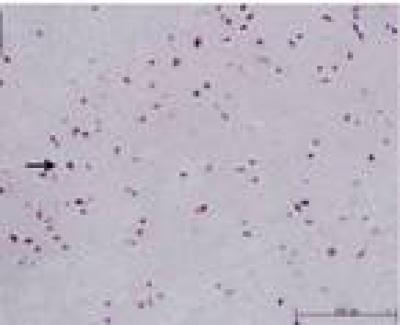Sevoflurane belongs to volatile anesthetics, and preconditioning with sevoflurane has been shown to exert protective effects against ischemic injury in the brain. But the mechanism is unclear.
Although studies have shown the neuroprotective effects of sevoflurane preconditioning in the transient cerebral ischemia model, its effect in the permanent focal cerebral ischemia model remains unclear. Dr. Qiu and colleagues from Sichuan University found that 60-minute sevoflurane preconditioning significantly reduced the infarct volume and the number of apoptotic cells in the ischemic penumbra of rats with permanent cerebral ischemia. However, 120-minute sevoflurane preconditioning did not show evident neuroprotective effects.

120-minute sevoflurane preconditioning induced no changes in the number of TUNEL-positive cells in the ischemic penumbra of rats at 24 hours after cerebral ischemia.
(Photo Credit: Neural Regeneration Research)
These findings, published in the Neural Regeneration Research (Vol. 8, No. 23, 2013), indicated that 60-minute sevoflurane preconditioning can induce the best neuroprotective effects in rats with permanent cerebral ischemia through the inhibition of apoptosis, and longer time sevoflurane preconditioning cannot contribute to better neuroprotective effects following permanent cerebral ischemia.
Source: Neural Regeneration Research